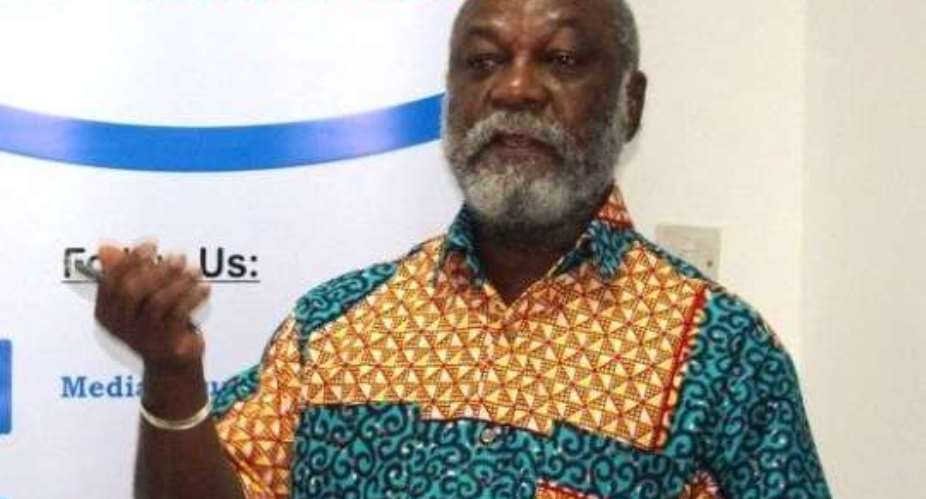Professor Kwame Karikari, Chairman, Board of Directors of the Graphic Communications Group, on Tuesday said media reportage, needs to be objective, analytical and critical.
He said it was also important that the media served all sections of the society, without tendencies towards unfairness and bias.
Prof. Karikari said this at an inaugural lecture, organized by the Public Agenda and the Commission for Human Rights and Administrative Justice, at the Du Bois Centre, in Accra.
It was on the theme: 'The Media, Human Rights and Politics in Ghana.'
He said whilst freedom of the media which was being enjoyed in the country, had greatly promoted democracy with a lot of citizen participation in public governance on one hand, there was also a growing tendency towards monopoly of the media.
'Thus what appears to be media pluralism could only be a mirage because media would only be interest based,' Prof. Karikari said.
He noted that in the past, especially during authoritarian regimes, state ownership of the media had been resisted by the citizenry for the sake of the overall progress of the country.
Prof. Karikari said this was because monopoly over the media was not good for our democracy, whether it was by the state or any other group.
He said once the media was controlled by a group or groups of people, they only promoted their cause, and left out issues that might be very important for the common good.
Whilst commending both the state and private media for exposing human rights abuses such as Trokosi and witch camps, and even freeing some victims of these systems, he said the media had generally concentrated on socio-economic issues, and not those concerned with human rights.
Prof. Karikari observed that most stories on human rights were mere news reports and lacked in-depth analyses, adding that adequate follow-ups to such stories were hardly done.
He said whilst the constitution 'explicitly' protected the independence of the state-owned media and the media's mandate to be free, independent, critical and to demand accountability from governance, 'the state owned media still remains timid after 25 years'.
Prof. Karikari said for the country's democracy to thrive and develop, there was the need for a media that could raise critical developmental issues which were crucial to the development of the country.
He said this was much better than promoting insults and propaganda, which only sought to serve specific interests and not the national and general good.
Prof. Karikari said it was important that the rights and privileges of the masses, who contributed immensely, not only to the socio economic progress of the country but also, the lot of the politician, were appropriately addressed by the media.
The programme was chaired by Prof. Audrey Gadzekpo, Dean of the School of Communications Studies, University of Ghana-Legon.
GNA
By Anane/Sanah, GNA





 Akufo-Addo commissions Phase II of Kaleo solar power plant
Akufo-Addo commissions Phase II of Kaleo solar power plant
 NDC panics over Bawumia’s visit to Pope Francis
NDC panics over Bawumia’s visit to Pope Francis
 EC blasts Mahama over “false” claims on recruitment of Returning Officers
EC blasts Mahama over “false” claims on recruitment of Returning Officers
 Lands Minister gives ultimatum to Future Global Resources to revamp Prestea/Bogo...
Lands Minister gives ultimatum to Future Global Resources to revamp Prestea/Bogo...
 Wa Naa appeals to Akufo-Addo to audit state lands in Wa
Wa Naa appeals to Akufo-Addo to audit state lands in Wa
 Prof Opoku-Agyemang misunderstood Bawumia’s ‘driver mate’ analogy – Miracles Abo...
Prof Opoku-Agyemang misunderstood Bawumia’s ‘driver mate’ analogy – Miracles Abo...
 EU confident Ghana will not sign Anti-LGBTQI Bill
EU confident Ghana will not sign Anti-LGBTQI Bill
 Suspend implementation of Planting for Food and Jobs for 2024 - Stakeholders
Suspend implementation of Planting for Food and Jobs for 2024 - Stakeholders
 Tema West Municipal Assembly gets Ghana's First Female Aircraft Marshaller as ne...
Tema West Municipal Assembly gets Ghana's First Female Aircraft Marshaller as ne...
 Dumsor is affecting us double, release timetable – Disability Federation to ECG
Dumsor is affecting us double, release timetable – Disability Federation to ECG
